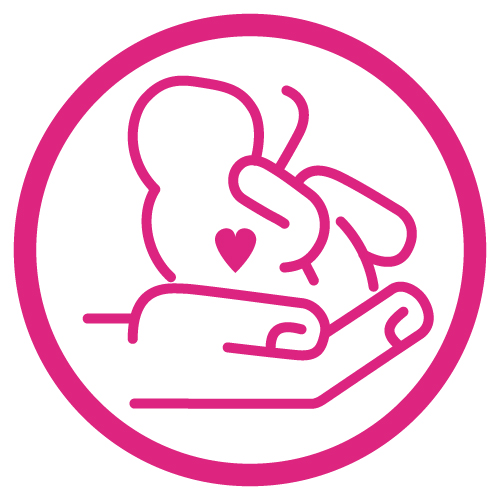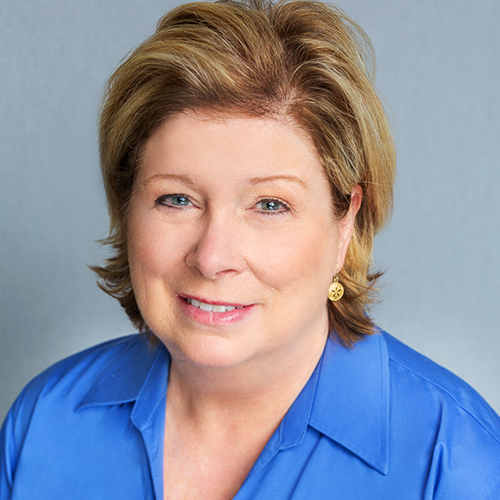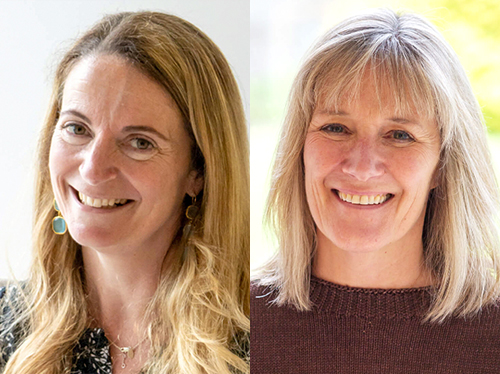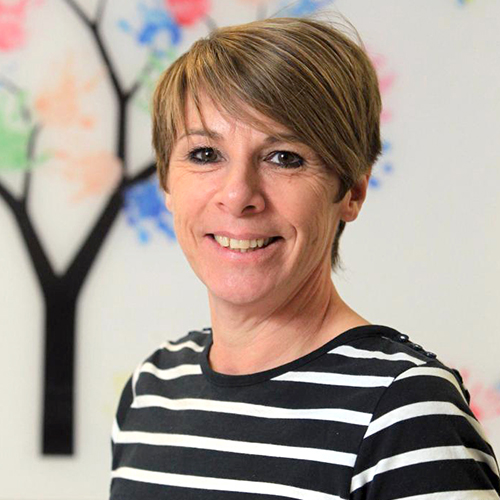 Neonatology Online Course(s) & Continuing Education
Neonatology Online Course(s) & Continuing Education
Access the latest clinical skills and research for Neonatology for Maternal Health professional training. These Neonatology online courses provide practice-changing skills and valuable perspectives from leading global experts. This Neonatology education has been accredited for a variety of CEUs / CERPs and can be accessed on-demand, at your own pace.
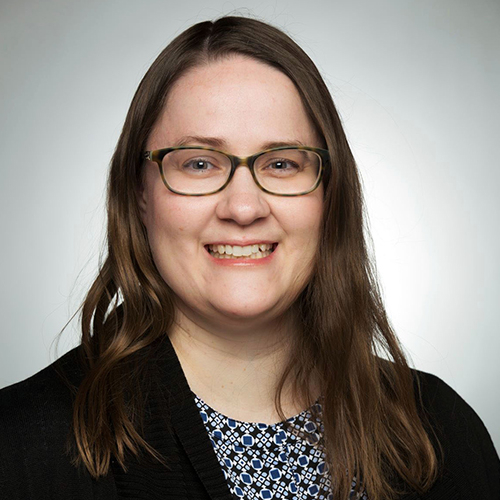
The Classics Versus New and Upcoming Therapies: Which is Better for Neonatal Seizures?

M. Petrea Cober, PharmD, BCNSP, BCPPS, FASPEN, attended the University of Tennessee, College of Pharmacy in Memphis, Tennessee. She completed her PGY1 Pharmacy Residency at Penn State Milton S. Hershey Medical Center in Hershey, Pennsylvania, and her PGY2 Pharmacy Residency in Pediatrics at the University of Michigan Hospitals and Health System in Ann Arbor, Michigan. She is currently the Clinical Pharmacy Specialist - Neonatal Intensive Care Unit and PGY1 Residency Program Director at Akron Children's Hospital where she provides clinical services and precepts pharmacy students and PGY1 pharmacy residents. She is also a Professor in the Department of Pharmacy Practice at Northeast Ohio Medical University (NEOMED). Her didactic teaching is in the areas of pediatrics, women’s health, and nutrition. She was awarded the 2021 Stanley Serlick Award from the American Society for Parenteral and Enteral Nutrition (ASPEN) recognizing her contributions to parenteral nutrition safety and serves as the current Chair-elect of the ASPEN Parenteral Nutrition Safety Committee.
The lifetime risk of seizures is highest in the neonatal period. While the etiology of neonatal seizures is commonly the result of acute brain injury, other possibilities exist. Unfortunately, the need to treat neonatal seizures with anti-epileptic therapies or the timing and duration of therapeutic management is still vastly unknown. While phenobarbital has long been considered the mainstay of first-line medical therapy for neonatal seizures, newer agents are increasing in their popularity due to fewer side effects and concerns regarding potential neuronal apoptosis with phenobarbital. This presentation will discuss the etiology, need and timing for therapeutic management, compare and contrast various anti-epileptic therapies, and first-line, second-line, and therapies following initial failure for neonatal seizures.
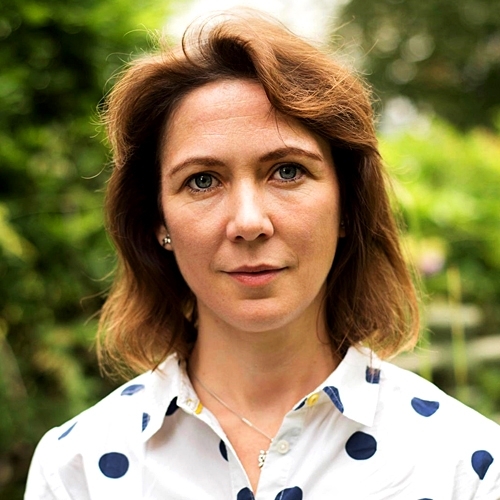

2. Rebeccah Slater is a Senior Wellcome Trust Research Fellow and Professor of Paediatric Neuroscience at the University of Oxford. She is also a Professorial Fellow st St John’s College, Oxford. Rebeccah studied Physics (BSc) at Imperial College and Neuroscience (MSc) at UCL, and in 2007 was awarded her PhD at UCL under the supervision of Prof Maria Fitzgerald. Since 2013 Rebeccah has led the Paediatric Neuroimaging Research Group, which focuses on understanding the mechanisms that underlie the development of pain perception in the human infant. She uses a range of non-invasive brain imaging tools, including EEG and fMRI, to explore the development of pain perception. She has published many articles about infant pain and has been passionately involved in science communication and the public engagement of science. She has taken part in discussions on TV and radio, including BBC Radio 4 and the BBC World Service. Rebeccah holds an honorary research position in the Neonatal Care Services at the John Radcliffe Children’s Hospital and is a PI at the Wellcome Centre for Integrative Neuroimaging (WIN).
Pain in infancy has negative long-term consequences and its prevention is a clinical priority, but adequate pain treatment requires mechanistic understanding of the structural and functional development of human pain-related brain circuitry. Recent scientific and technological advances provide insights into how noxious information is transmitted to the infant brain, providing a platform to ask how intrinsic brain network connectivity and the environment affect pain-related brain activity, behaviour and ultimately pain perception in the developing infant nervous system.
As infants cannot describe their pain, we are reliant on alternative methods to measure their pain experience. My goal is to understand the mechanisms that drive and modulate pain perception in early human development. In this talk, I will discuss a series of mechanistic studies in human infants that aim to better understand the development of human pain. I will address fundamental questions regarding the functional development of pain-related brain activity and behavior, and will discuss whether inherent individual differences in how the infant brain behaves at rest drives differences in pain vulnerability. Finally, I will describe how these mechanistic insights can be used to test new analgesic treatment options and improve the treatment of infant pain.
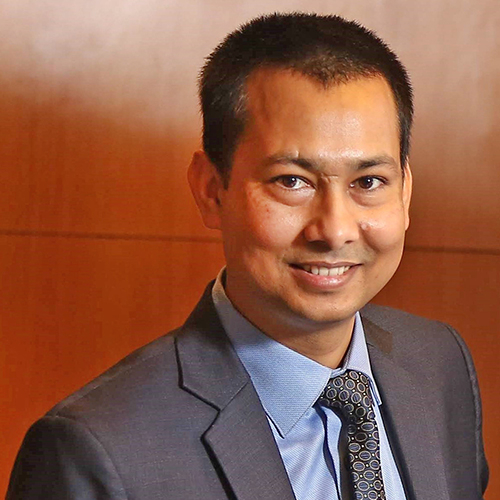
The Golden Hour of Neonatal Life: Improving Outcomes Through Evidence-Based Interventions

Dr. Ankur Bio Update - Dr. Kumar Ankur, MD, DNB is working as an Associate Director & Head of the Department of Neonatology at BLK MAX Super Speciality Hospital Delhi, India. He has been working in the field of neonatology with private and non-goverment organisations for improving neonatal healthcare in the country. He is the national faculty and trainer for FBNC (Facility based neonatal care), Neonatal Resuscitation, Kangarroo Mother Care (KMC) and the national assessor for Neonatology Fellowship accreditation programme of India. He has been invited as an expert speaker, faculty, chairpersons for various national and state level conferences and workshops. He has many publications in national & international journal and authored many chapters, guidelines published by Indian Academy of Pediatrics & National Neonatology of Forum Delhi & India. He is also the co-editor of Handbook of Neonatal Clinical Practices. He is also running training program in neonatal Fellowship for postgraduate students & neonatal nurses. Currently he is also the Secretary of prestigious National Neonatology Forum, Delhi. National Neonatology Forum (NNF) is a strong and large body of more than 8000 neonatologists across India and abroad. NNF has been actively involved in advocacy, policy making, research and ensuring quality health care to newborn for the last 4 decades. He had been past Secretary (2014) & President (2018) of Indian Academy of Pediatrics (IAP), Central Delhi Branch.
Topic: Tongue-Tie and the NICU: A Neonatologist Perspective - [View Abstract]
Prematurity is the leading cause of death across the globe, mainly in low resource settings. Infants born at less than 32 weeks gestation, are prone to developing hypothermia, hypoglycemia, and hospital acquired infections after birth. For them, the initial 60 minutes of holistic approach is crucial for long-term outcomes. The “Golden Hour” of neonatal life is defined as the first hour of post-natal life in both preterm and term neonates. This concept includes practicing particular evidence based interventions in the initial sixty minutes of postnatal life for better long-term outcomes like marked reduction in hypothermia, hypoglycemia, intraventricular hemorrhage (IVH), bronchopulmonary dysplasia (BPD), and retinopathy of prematurity (ROP). This presentation will provide a look at the various components of neonatal care that are included in the “Golden hour” of preterm and term neonatal care. Healthcare professionals attending the birth of high risk infants like VLBW (very low birth weight, less than 1500 grams) or high-risk term neonates should be well trained in attending such deliveries and should be able to implement all the management protocols during the golden first 60 minutes of life.
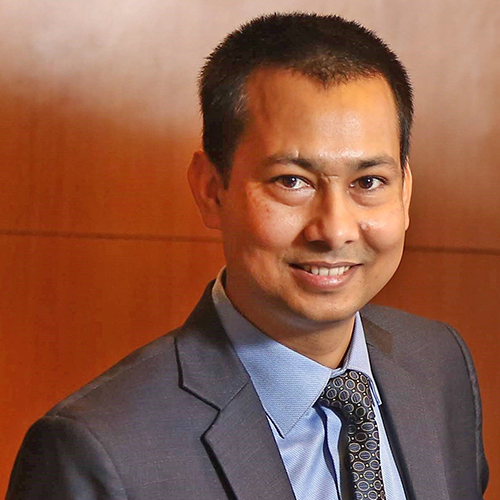
View Details / Enroll
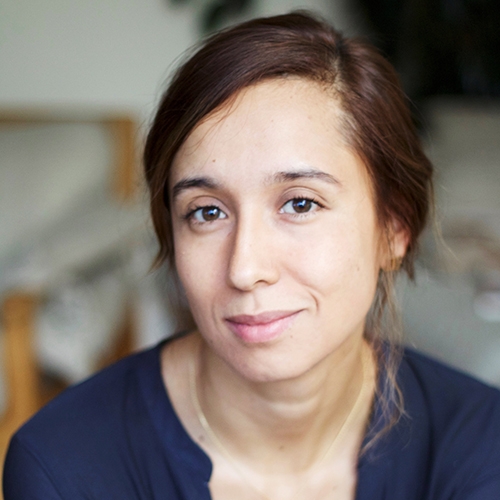

Dr. Natalia Varela is a professor at the Externado University of Colombia. She directs the family and children research department. Dr. Natalia´s research experience on child development involved an interdisciplinary approach that enabled her to acquire tools working on an array of projects involving at-risk children and families around the world (Colombia, Canada, India, Vietnam, Indonesia, Burundi). Having worked with United Nations agencies and international NGOs, Dr. Natalia has gained expertise in academic research, as well as international development. Dr. Natalia works closely with the Kangaroo Foundation in Colombia on interesting research about premature birth and fatherhood. She holds a Ph.D. in Psychology from Laval University in Canada.
Over the past decades, researchers have established the importance of the father on child development. Research shows that when fathers are involved, child development is affected. Children show better cognitive skills, fewer aggressive interactions, and better performance in school. Research shows that the earlier the involvement, the better. Nonetheless, when the baby is born premature, this interaction is usually delayed as life is in danger and, the baby is placed in the NICU. Premature birth (≤ 37 weeks of gestation) is a sudden and overwhelming event for the whole family. Parents of premature babies experience high levels of stress, anxiety, and depression. Most studies and interventions are focused on babies and mothers, neglecting fathers. The Kangaroo mother care method in which the baby must be placed in skin-to-skin position as long and much as possible has transformed not only the NICU practices but also the involvement of family members (especially fathers) in the care of premature babies. We will explore the experiences and impact of skin to skin contact on fathers in different countries and cultures.
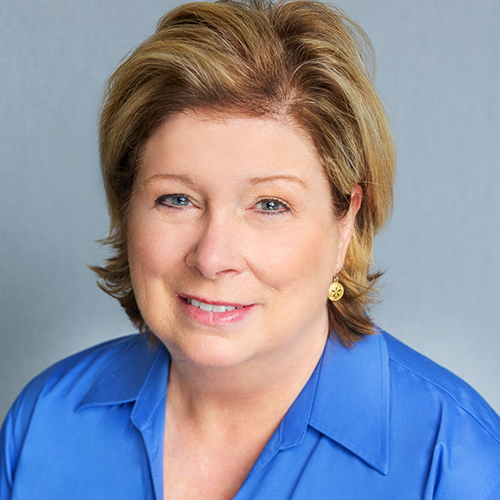

Dr. Scott is the coordinator of the advanced practitioner group for Mednax Medical Group in Nashville, Tennessee as well as the coordinator of the neonatal transport service at Centennial Medical Center, also in Nashville. She is also an assistant professor in the neonatal nurse practitioner program at Vanderbilt University School of Nursing. For the last few years, she has become interested in the use of telemedicine in neonatal care and works with a Neonatology practice that actually practices using telemedicine in Level I and II facilities. She is also involved in quality improvement at the state level through her work with the Tennessee Initiative for Perinatal Quality Care.
Patti received her Bachelor’s Degree in Nursing from Vanderbilt University in 1988. Her Masters of Science Degree in Nursing with a specialty in neonatal critical care was completed in 1993 from Vanderbilt University and her Doctorate in Nursing Practice from the University of Tennessee Health Science Center. She has successfully completed the National Certification Corporation's Neonatal Nurse Practitioner, Neonatal Pediatric Transport, and the Neonatal Intensive Care examinations.
Patti is a member of several nursing, advanced practice, and neonatal professional organizations. She is an active NRP and S.T.A.B.L.E. instructor and has developed and provided numerous neonatal educational courses for staff.
The use of telemedicine is an emerging trend in health care, this includes neonatal care. Benefits include real-time access to experts routinely and during emergency situations such as delivery room resuscitations and stabilizations, the ability for families to stay connected to their newborn in the Newborn Intensive Care Unit (NICU) after the mother has been discharged from the hospital, and to assist in the decision for transport of the newborn to a higher level of care. Several studies have documented the reduction in transfers from community hospitals since telehealth has been implemented in the nursery. Limitations include the need for knowledgeable and experienced providers to be at bedside, physicians who are familiar with advance practice providers and their abilities, and the technical challenges that can present and have to remedied.
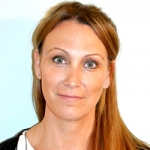
The Power of Storytelling - The Human Experience in the Neonatal Intensive Care

Jodi is registered nurse with a strong passion for preemies, developmental care in the NICU, parent teaching, and education. When not at the bedside, Jodi is hard at work offering support and lending a virtual hand to parents of NICU babies through her organization Peekaboo ICU. Jodi is the president/CEO as well as a Family Support Specialist that heads up the organization’s Journey Bead Program- offering a tangible way to track, document, and celebrate milestones in the NICU. Jodi attended college in Ontario Canada where she completed her nursing degree. After college, Jodi earned a number of certification in neonatal nursing including her RNC-NIC, Developmental Care Specialist certification, and an Advanced Certification in Neonatal nursing while attending BCIT’s Bachelor of Science in Neonatal Nursing degree program. Jodi is currently working towards her Masters of Science in Nursing-Care Coordination degree through Capella University.
Storytelling is the foundation of the human experience and can be an extraordinarily powerful tool used to connect families and healthcare providers in the neonatal intensive care. The NICU is a fast-paced, high stress environment so it’s easy to lose site of the story, but it is the story that can make a difference, not only to the families you serve, but to you as well. It is through storytelling that a compassionate, real approach to care and medicine will bring change to the NICU experience, increase patient satisfaction, and decrease burnout and compassion fatigue. In this presentation you will learn how to develop more empathetic relationships with families on the basis of a deeper understanding of their human experience. Follow Jodi as she explores the principles of storytelling, evaluates the use of narrative medicine in NICU education, and teaches ground breaking strategies to recreate a positive and profound NICU experience through the power of human connections.
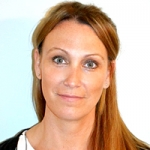
View Details / Enroll

View Details / Enroll
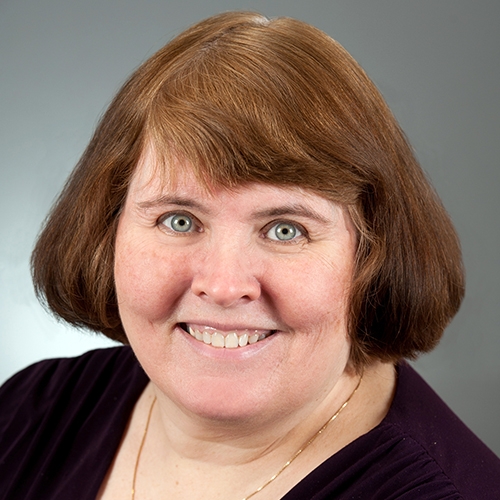

Kathy Gura is the manager for Pharmacy Clinical Research Program and a clinical pharmacist with the Clinical Nutrition Service in the Division of GI/Nutrition at Boston Children's Hospital. She is also an Assistant Professor of Pediatrics at Harvard Medical School and an adjunct member of the faculty at MCPHS University, Northeastern University and the University of Connecticut. She is a member of the Center for Advanced Intestinal Rehabilitation and the Home PN Program at Boston Children’s Hospital. Dr. Gura received her BS and Pharm.D from the Massachusetts College of Pharmacy and Health Sciences in Boston. Certified as a Nutritional Support Pharmacist, Dr. Gura is a Fellow of the ASHP, ASPEN, PPA and MSHP. She was recently named the 2020 Nutrition Champion by the American Society for Parenteral and Enteral Nutrition. Dr. Gura is the author of numerous book chapters on pediatric nutrition and has written more than 130 peer reviewed on topics such as the intestinal failure associated liver disease, clinical practice guidelines for parenteral nutrition, and the use of parenteral nutrition in the neonate. She currently serves as an associate editor for JPEN.
Intravenous lipid emulsions (ILE) are essential for promoting optimal nutrition in the neonatal intensive care unit. However, long-term use of a pure soybean lipid emulsion has been associated with potentially fatal complications such as intestinal failure associated liver disease and fat overload syndrome. In the past decade, the science of lipid emulsions has progressed with a focus on optimizing nutrition and prevention of disease, Concerns on the use of these different oil sources on essential fatty acid status and growth will be discussed. By providing an overview of the current literature, this lecture will provide a general overview of the currently available ILE and how differences in composition may impact the neonate.
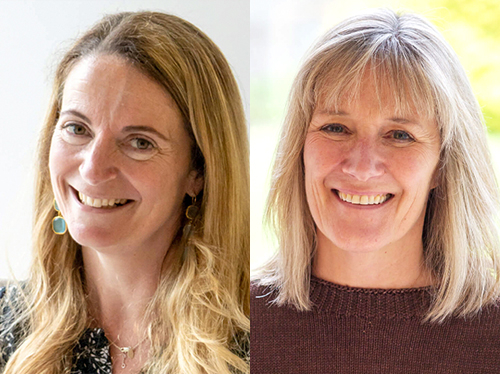

Emily Hills is co-author and co-founder of Sensory Beginnings Ltd, she is a Clinical Specialist Neonatal Occupational Therapist at Royal Free London NHS Foundation Trust. Emily is a certified neonatal therapist (CNT). She has completed her MSc in Advanced Neonatal Studies at Southampton University. Emily is NIDCAP certified and lectures on The Family and Infant Neurodevelopmental Education (FINE) programme in the UK. Emily has completed Neonatal Touch and massage certification (NTMC) and has completed the advanced course in The Prechtl General Movement Assessment. She is a senior Brazelton trainer and lectures on both the Neonatal Behavioural Assessment Scale (NBAS) and Newborn Behavioural Observation (NBO). She is an Advanced Practitioner in Sensory Integration.
Lindsay Hardy is the Director of Clinical Services at PACE, where she leads a multidisciplinary team of therapists, providing therapy to children from 0- 19 years and support to their families. Lindsay has led the development of the Pace Early Intervention Service for children 0-3 years and their families. Lindsay has designed content and taught post-graduate courses in the field of paediatric occupational therapy, sensory integration, cerebral palsy, early intervention & developmental neurology. Lindsay was involved in the start-up of national organisations Sensory Integration Network UK & Ireland and EISMART. She is co -founder and co-author of Sensory Beginnings Ltd
Human neurobiology is highly sensitive to stressors. Adverse early life experiences create stress that have the possibility to change brain chemistry, anatomy and gene expression. These changes can predispose a baby to impaired emotional regulation, poor cognitive development, and increased risk of cardiovascular, metabolic and immune system dysfunction. In addition, chronic stress can become trauma and have a long term effect. In the neonatal unit the infant, parents and staff are experiencing stress. This presentation will focus on the role of sensation and how we can use sensory experiences to create healing environments, enhance optimal development and minimise stress and trauma.


Lisa Leppard has worked within a Neonatal Tertiary Unit for 30 years in Clinical, Management, Network and National roles. Her current role, which she has undertaken for 19 years, has been developing the post of Clinical/Family Support Lead Nurse within a tertiary Neonatal Unit, utilising clinical evidence, audit, data and parent/carer feedback. She is responsible for the completion of national databases i.e. MBRRACE & PMRT. Initially this role was part-time but she has developed it, making it into a full-time role and leading a team of 3. The team also includes a clinical psychologist and to gain funding for this role, she worked collaboratively on the business case as part of the Neonatal Parents Mental Health Framework. The team ensures that Family Centred Care remains integral to the unit's ethos & that the parents/carers are given a voice and are well supported. Until recently, she was also the Safeguarding Lead for the Neonatal Unit and completed Level 3 training in Safeguarding. She has extensive experience with audit, working with all levels of the multidisciplinary teams. She was the lead for the BLISS Accreditation of the UHS Neonatal Unit, which was the first unit to be awarded Family Friendly Accreditation within the UK. She was recently part of the BLISS working party to review and update the BLISS audit tool and has also been a Professional BLISS Baby Charter Assessor. She has been the Thames Valley and Wessex Neonatal Network Lead Nurse for Palliative Care for 6 years. To facilitate standardisation of palliative care across the Network, she co-wrote the Palliative Care Pathway adopted and adapted in 2014 by TV&W NNW. She recently facilitated the review and update of the Palliative Care Pathway within the Network. In 2017, she contributed to the review and re-launch of the Together For Short Lives Neonatal Palliative Care Pathway. She is a chapter co-author in the new Palliative Care Text Book for Neonatal Nurses. She co-wrote the chapter on the Nurse’s role in the decision making process. (Neonatal Palliative Care for Nurses. Springer, 2020)
As lead of the Family Support Team, Lisa has developed a link with the Fetal Medicine Team working with families where a life-limiting diagnosis has been made to both support and plan the care of the parents and their baby at delivery and beyond, as well as completing ACP’s and discussing symptom management with parents and medical colleagues. This process includes acting as an advocate for the baby and their families, and always listening to their individual needs. She was part of the team to adapt a Perinatal Palliative Care Pathway for the Wessex Region. She has also worked collaboratively with the Multidisciplinary Paediatric teams to develop pathways to ensure the transition of care of neonates to Paediatrics is seamless & the parents/carers are well supported in the process.
Lisa has been seconded to develop the role of Neonatal Palliative Care Specialist Nurse at Naomi House, a local children’s hospice, raising the profile of hospice care being accessible to neonatal families and staff. She has developed a referral pathway and has visited all the units in the Wessex region, establishing contacts & promoting this as a choice to be offered to parents. She has undertaken the UNICEF Breast Feeding Training course and supported the Breast Feeding Lead Nurse with working towards the Baby Friendly Initiative within her unit. She completed a Counselling Diploma in 2016 and qualified as a Civil Mediator in 2018. Both of these qualifications have enhanced her communication and listening skills when working with families and professionals at all levels. She has a proven track record of managing and defusing challenging situations. She has developed Parental Support Groups and initiated a Father’s Group on the Neonatal Unit.
End of life care in the NICU is challenging for parents and staff alike. Nurses are a vital part of the NICU team and during end of life care they facilitate support and information to parents as well as colleagues and provide regular assessments of the baby. Accurate and consistent information is vital for the parents to feel empowered to engage fully. This part of a neonatal nurse's role can be emotionally challenging, and this is an important point to highlight. This presentation aims to evoke discussion around the nurses role in the decision making process when moving to end of life care of a baby and includes measures to ensure that staff feel involved and supported throughout the process.
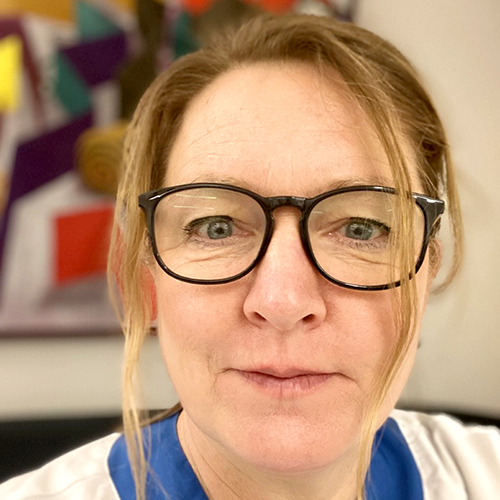
The Swedish Experience of Parental Involvement and Nurturing Care of Extremely Preterm Infants in the NICU

Became an RN, 1994. PhD in medical sciences Uppsala University, Sweden, 2012 (The name of the thesis: Kangaroo Mother Care - Parents’ experiences and patterns of application in two Swedish neonatal intensive care units).
Currently one of two Head nurses at the NICU in Uppsala, Sweden and are responsible for nursing care research, education and nursing care improvement. Also an associate professor at Uppsala University. Is an active researcher within research area around neonatal care and has about 30 scientific publications in peer-reviewed journals.
This presentation will focus on the nurturing care of extremely preterm infants and their parents. Parent-infant separation is commonplace in NICUs and even more if the infant is born extremely preterm. Parent’s presence could be restricted by the rules and routines in the neonatal intensive care environment and skin-to-skin contact is not always possible due to the infant’s condition. Early and extensive contact between the infant and the parents enables the parents to get to know their infant and to feel and act like parents. At the NICU in Uppsala, Sweden, our experience is that parents, even those who have an extremely preterm infant want to be present and to stay close, 24/7, to their infant during the infants NICU stay. The aim of this presentation is to report clinical experiences from the NICU in Uppsala about how the NICU environment and NICU staff can facilitate or hinder parental presence, parental participation, and skin-to-skin contact when the infant is born extremely preterm.
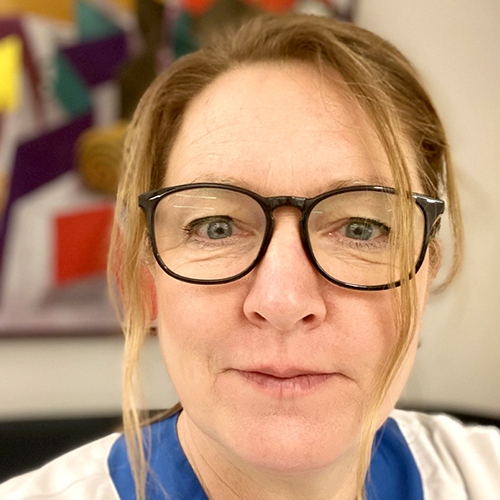
View Details / Enroll



